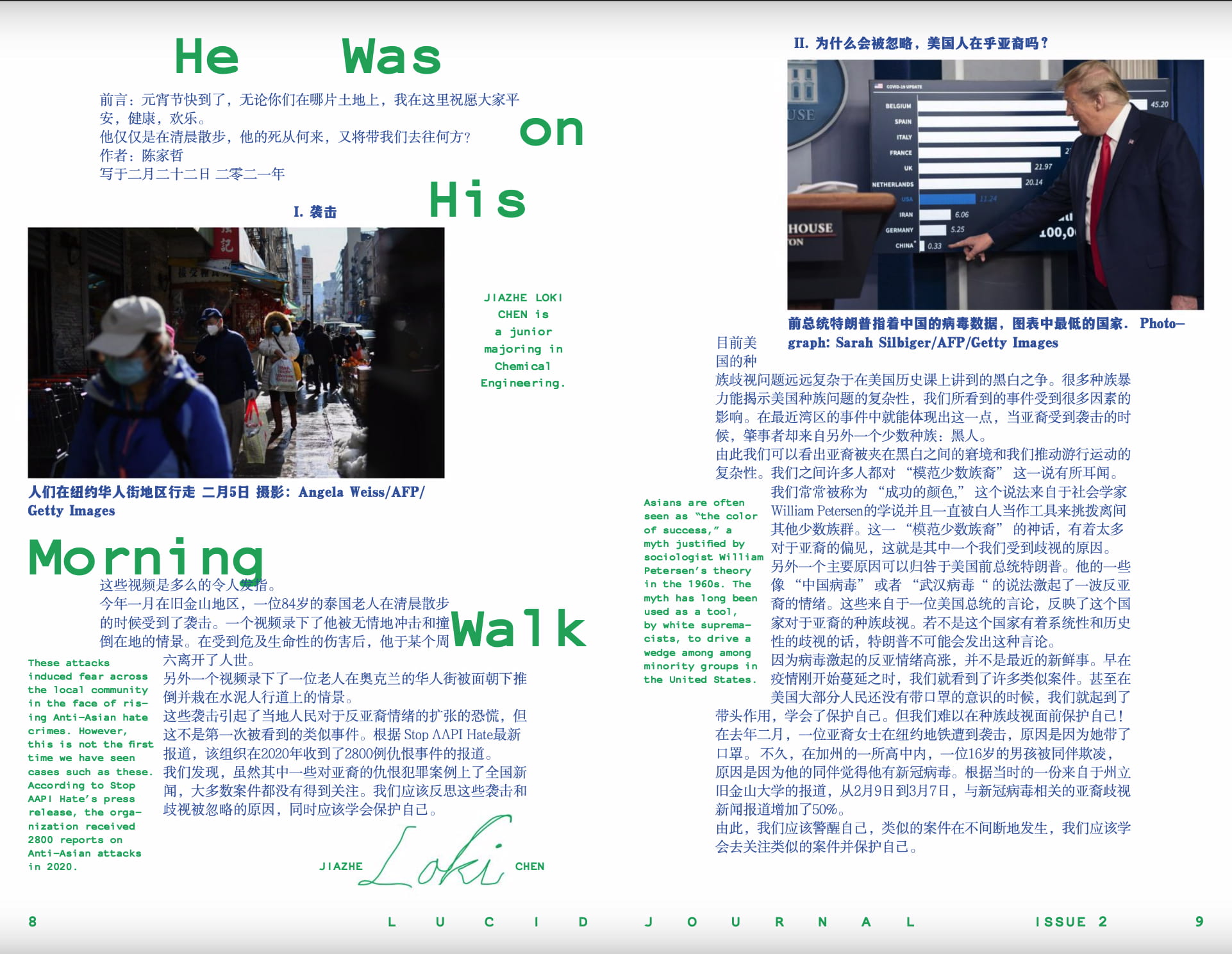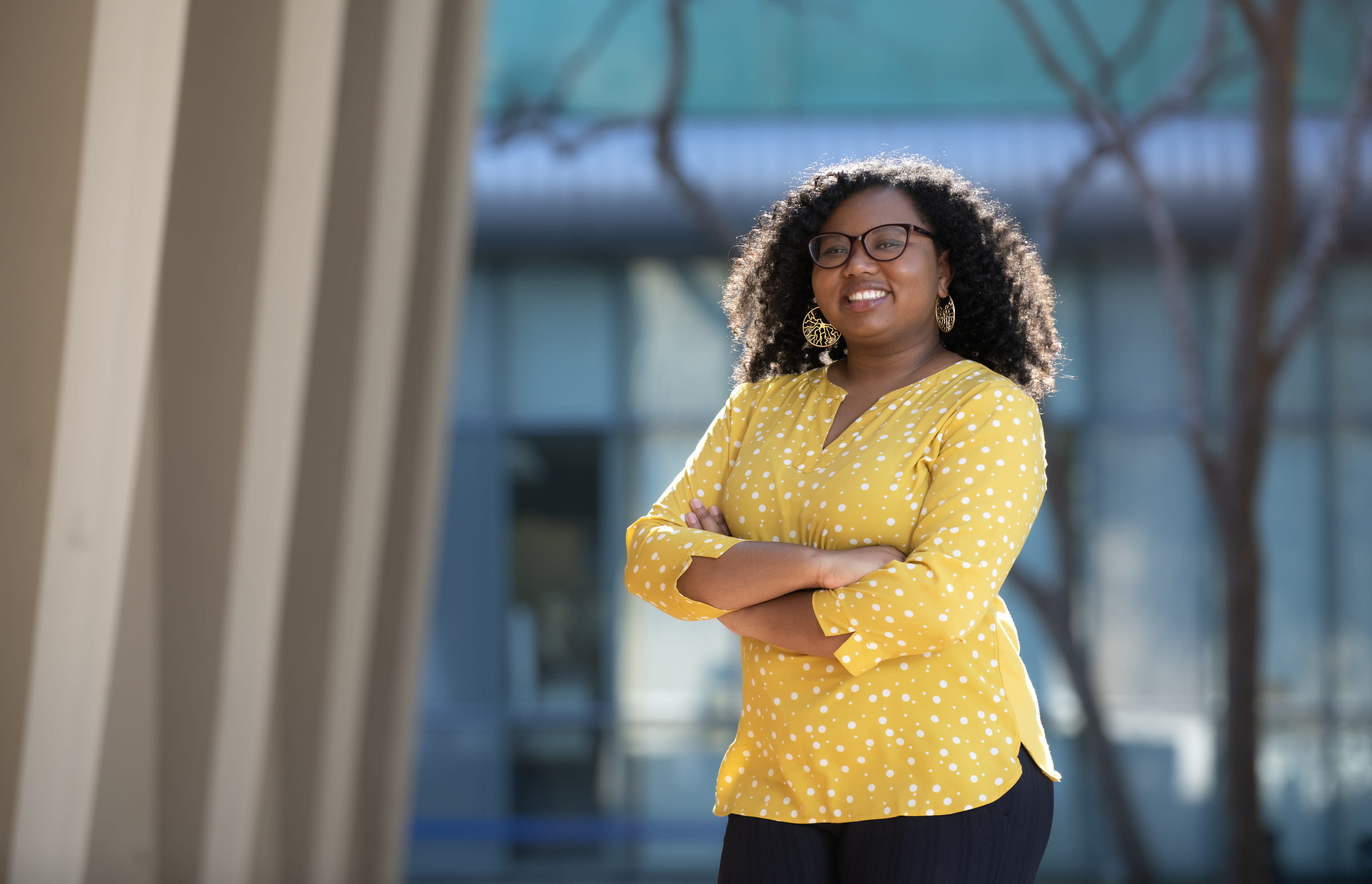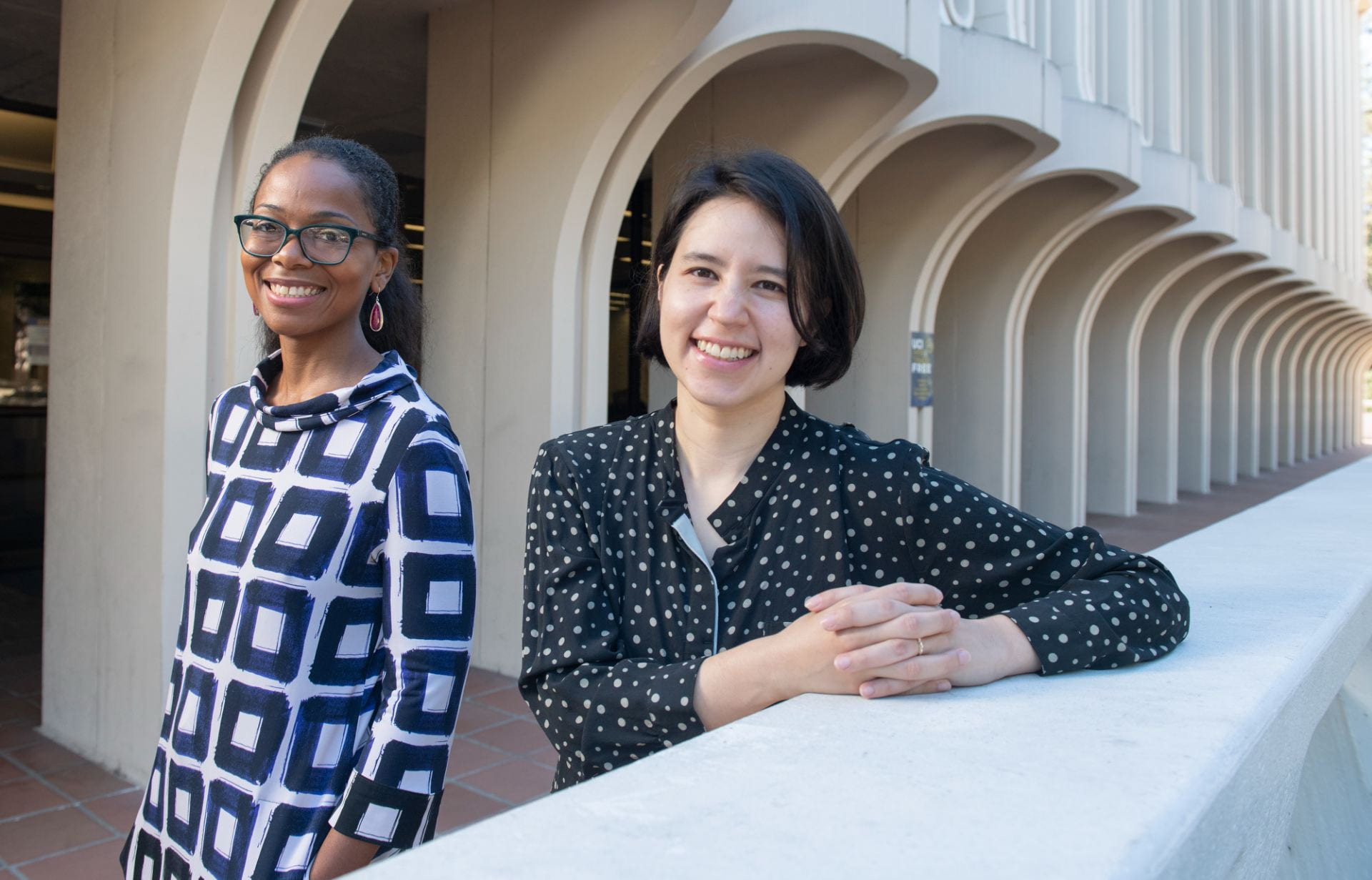First-gen undergrad journal publishes second issue
Latest edition of Lucid showcases writing on the pandemic-driven theme of ‘Transitions & Transformations’

In 2020, Lucid published its first issue, featuring writing by undergraduate members of UCI’s large first-generation student population. After a full year of online learning, the journal continues to showcase the unique stories these students have to share in this year’s second issue, focusing on “Transitions & Transformations.”
Composition lecturer Scott Lerner’s background as a first-generation student inspired his co-founding of Lucid last year, along with fellow lecturer Rachael Collins. As the journal’s main editor this year, Lerner came up with the theme for this issue – with Lucid’s managing editor and fellow lecturer Ryan Chang – when the university began its conversion to remote learning.
“Over the summer of 2020, there was the Black Lives Matter movement, the wildfires in California and so much more,” he says. “Along with the ongoing pandemic and the transitions required of all of us, our world, literally, was transforming in so many ways – and I knew that students would be writing about those things, thinking about those things, and having really important perspectives and experiences to share.”
While some of the long-form written pieces in Lucid began as projects for various composition courses, the content hails from many different academic origins, such as literary journalism courses, criminology classes and other contexts. As a lecturer, Lerner keeps an eye out for students who want to develop their stories outside the classroom and encourages them to submit their work to publications such as Lucid.
Third-year psychology major Rachel Wong is one of these students. Her autoethnography “Lending an Ear to a Silent World” was originally written for Lerner’s Writing 39B course. It details the transformation of her world as a person who’s deaf from the point of her cochlear implant surgery at age 7 to her experiences now with pandemic-driven mouth coverings and glitchy videoconferencing.
Wong enjoys the community that Lucid creates for first-generation students like herself and is glad to have a platform for raising awareness of the struggles that deaf and partially deaf people face, especially today.
“There was one friend of mine who messaged me after reading the piece and said they loved it – so that was nice to hear. And they got to learn another perspective, which is pretty cool,” she says.
Third-year chemical engineering major Jiazhe “Loki” Chen wanted to provide readers with the perspective of an international student – specifically, a Chinese student – during a time of xenophobia and Asian discrimination.
Also originally crafted for an English composition course, his piece, “He Was on His Morning Walk,” is visually striking in that it’s the only one in the journal published in Mandarin instead of English.
“I wrote the article first in Chinese, actually, because I had a lot to say. I had some discussions with some of my friends about our personal experiences being verbally or even physically attacked,” Chen says. “I guess I had a fire in my heart.” He felt that writing the first draft in Mandarin, his first language, allowed him to express his emotions in a stronger way than English could convey.
For his class assignment, Chen translated the story into English, but he submitted both versions to Lucid. Keeping UCI’s large Chinese student population in mind, he hoped the editors would see the value in having Mandarin characters printed in an English-dominated journal.
“Honestly, I was a little bit surprised when I heard that they would be publishing the entire article in Chinese,” Chen says. “But the problems [discussed in the piece] are much bigger than just me, than just Lucid, than just UCI. They’re everywhere; it’s a serious social issue.”
This statement is true of many of the topics covered in Lucid’s second issue, which has given students like Wong and Chen both a forum and a sense of validation.
“I wasn’t aware that there are so many other first-generation students who are voicing their thoughts,” Chen says. “That was very powerful to me.”
If you want learn more about supporting this or other activities at UCI, please visit the Brilliant Future website. Publicly launched on Oct. 4, 2019, the Brilliant Future campaign aims to raise awareness and support for UCI. By engaging 75,000 alumni and garnering $2 billion in philanthropic investment, UCI seeks to reach new heights of excellence in student success, health and wellness, research and more. The School of Humanities plays a vital role in the success of the campaign. Learn more by visiting: https://brilliantfuture.uci.edu/uci-school-of-humanities/.

